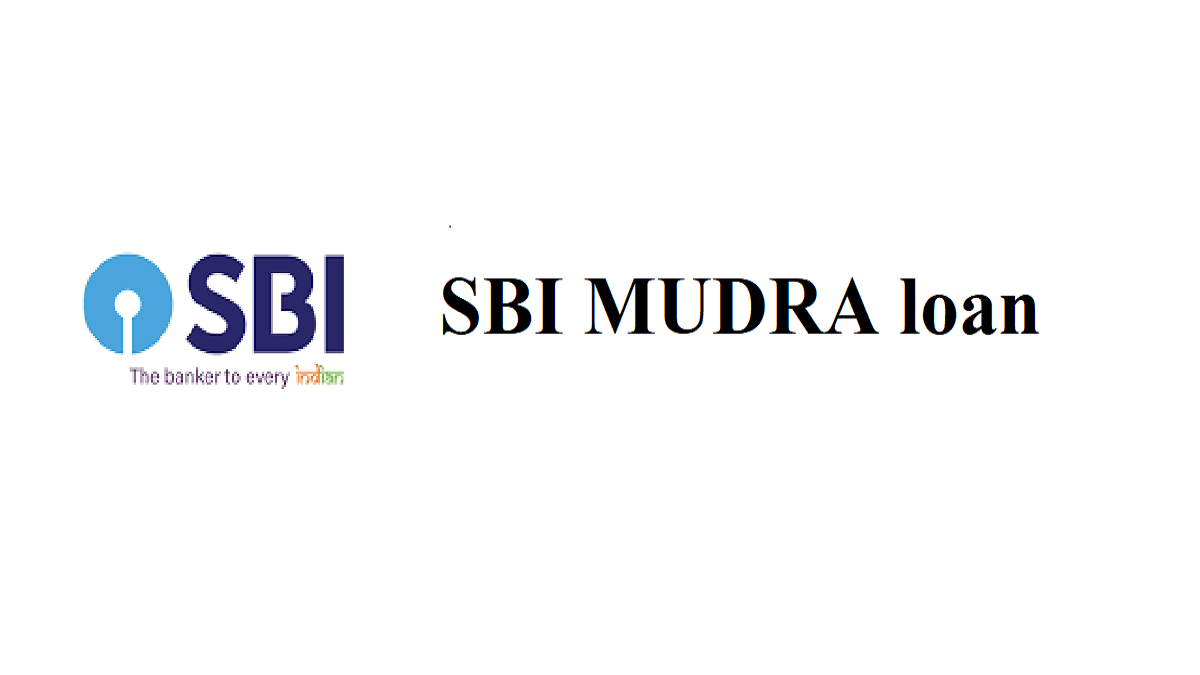SBI MUDRA loan refers to a type of loan offered by the State Bank of India (SBI) under the Pradhan Mantri Mudra Yojana (PMMY) scheme. MUDRA stands for Micro Units Development and Refinance Agency, and the PMMY scheme was launched by the Government of India to provide funding to small and micro enterprises in the country.
The SBI MUDRA loan is designed to provide financial assistance to small and micro enterprises in the non-farm sector, such as manufacturing, trading, and service industries, to help them grow and expand their businesses. The loan amount can range from Rs. 50,000 to Rs. 10 lakhs, depending on the business requirements and eligibility criteria.
The loan is available in three categories: Shishu, Kishor, and Tarun, depending on the stage of the business and the loan amount required. The interest rate for SBI MUDRA loans is generally lower than other business loan products, and the repayment period can vary from 3 to 5 years, depending on the loan amount and category.
To apply for an SBI MUDRA loan, the borrower needs to provide basic KYC (Know Your Customer) documents, along with business-related documents such as business plan, loan application form, and financial statements. The eligibility criteria for SBI MUDRA loans may vary based on the borrower’s creditworthiness, business profile, and loan amount.
SBI Mudra Loan Interest Rate
The State Bank of India (SBI) offers Mudra loans to small businesses and entrepreneurs under the Pradhan Mantri Mudra Yojana (PMMY) scheme. The Mudra loan scheme was launched by the Indian government to provide financial assistance to micro and small enterprises in the non-farm sector.
SBI Mudra loans are available in three categories – Shishu, Kishor, and Tarun – depending on the stage of the business and the loan amount required. The interest rates for SBI Mudra loans vary based on the category of the loan, and can range from 8.50% to 12.50%.
The interest rate for Shishu loans, which are meant for new businesses, can be as low as 8.50% per annum. The Kishor loans, which are meant for businesses that are in their growth phase, have an interest rate starting at 9.50% per annum. Tarun loans, which are meant for established businesses looking to expand, have an interest rate starting at 10.50% per annum.
SBI Mudra loans come with a flexible repayment period of up to 5 years. Borrowers can choose from various repayment options such as structured or balloon payments, depending on their business cash flow.
To apply for an SBI Mudra loan, borrowers need to provide basic KYC documents, along with business-related documents such as a business plan, loan application form, and financial statements. The eligibility criteria for SBI Mudra loans may vary based on the borrower’s creditworthiness, business profile, and loan amount.
In conclusion, SBI Mudra loans are a great financing option for small businesses and entrepreneurs in India, as they come with flexible repayment terms and competitive interest rates.
Apply for SBI e-Mudra
To apply for an SBI e-Mudra loan, you can follow the steps given below:
- Visit the State Bank of India’s official website and navigate to the e-Mudra loan section.
- Click on the “Apply Now” button.
- Fill in the application form with all the required details, such as personal and business information, loan amount, and loan category (Shishu, Kishor, or Tarun).
- Upload the necessary documents, such as KYC documents, business registration certificate, bank statements, and income tax returns.
- Submit the application form and wait for the bank’s approval.
Alternatively, you can also visit your nearest SBI branch and fill in the e-Mudra loan application form. The bank officials will guide you through the application process and help you with the necessary documentation.
Before applying for an SBI e-Mudra loan, make sure you meet the eligibility criteria, which may vary based on the loan category and your creditworthiness. It is also essential to have a sound business plan and financial projections to convince the bank of your loan repayment capability.
SBI e-Mudra Loan Eligibility and Documents required
The eligibility criteria for SBI e-Mudra loans may vary based on the loan category (Shishu, Kishor, or Tarun) and the borrower’s creditworthiness. However, some of the general eligibility criteria are:
- The borrower must be an Indian citizen.
- The borrower must be at least 18 years of age.
- The borrower must have a valid business plan and financial projections.
- The borrower must have a good credit score and repayment history.
Documents required for SBI e-Mudra Loan:
The documents required for SBI e-Mudra loans may vary based on the loan category and the borrower’s creditworthiness. However, some of the general documents required are:
- KYC documents such as Aadhaar Card, PAN Card, Voter ID, or Passport.
- Business registration certificate such as MSME registration or Shop Act license.
- Bank statements for the past 12 months.
- Income tax returns for the past 2-3 years.
- Proof of business address such as rent agreement or utility bill.
Additional documents may be required based on the loan category and the borrower’s financial profile. It is advisable to check with the bank officials or visit the SBI website for the complete list of documents required for e-Mudra loans.
In conclusion, SBI e-Mudra loans are a great financing option for small and micro enterprises in India. To apply for an e-Mudra loan, the borrower must meet the eligibility criteria and submit the necessary documents as per the loan category.
SBI Mudra Loan Eligibility Criteria
The eligibility criteria for SBI Mudra loans may vary based on the loan category (Shishu, Kishor, or Tarun) and the borrower’s creditworthiness. However, some of the general eligibility criteria are:
- The borrower must be an Indian citizen.
- The borrower must have a valid business plan and financial projections.
- The borrower must have a good credit score and repayment history.
- The borrower must belong to the micro or small enterprise category as per the definition of the Ministry of MSME.
- The borrower’s business must be in the non-farm sector.
- The borrower must not have defaulted on any loan or credit facility in the past.
The specific eligibility criteria for each category of SBI Mudra loan are:
- Shishu Loans: These are meant for new businesses and entrepreneurs, and the loan amount can go up to Rs. 50,000. The borrower must have a business plan and a credit score of at least 600.
- Kishor Loans: These are meant for businesses that are in their growth phase, and the loan amount can range from Rs. 50,000 to Rs. 5 lakhs. The borrower must have a business plan, financial projections, and a credit score of at least 650.
- Tarun Loans: These are meant for established businesses looking to expand, and the loan amount can range from Rs. 5 lakhs to Rs. 10 lakhs. The borrower must have a business plan, financial projections, and a credit score of at least 700.
It is advisable to check with the bank officials or visit the SBI website for the complete list of eligibility criteria and documentation required for SBI Mudra loans.
Additional Benefit SBI Mudra loan
Apart from the low-interest rates and flexible repayment options, SBI Mudra loans offer several additional benefits to the borrowers, such as:
- Collateral-free loans: SBI Mudra loans are collateral-free, which means the borrowers do not have to provide any security or guarantor for the loan.
- Quick approval and disbursement: SBI Mudra loans have a simplified application process, and the loans are approved and disbursed quickly, usually within a few days of the application.
- Interest subvention: The Government of India provides interest subvention of up to 2% on SBI Mudra loans, which reduces the cost of borrowing for the borrowers.
- Credit guarantee: SBI Mudra loans are covered under the Credit Guarantee Fund Scheme for Micro and Small Enterprises, which provides a credit guarantee of up to 75% of the loan amount to the banks in case of default.
- Financial inclusion: SBI Mudra loans aim to promote financial inclusion and entrepreneurship among the underserved sections of the society, such as women, SC/ST, and minority communities.
- Business development support: SBI provides business development support and handholding services to the borrowers to help them grow and expand their businesses.
In conclusion, SBI Mudra loans provide several additional benefits to the borrowers, apart from the low-interest rates and flexible repayment options, which make them an attractive financing option for small and micro enterprises in India.












Leave a Reply